Modern Homesteaders-Journey After 50
Today, it’s all about modern homesteaders and the journey after 50. If you’ve come upon the better part of mid-life, you’ll probably agree the past 20 to 30 years flew by in a hectic frenzy, leaving you wondering where the time had run off to. Do you have what it takes to be a modern homesteader, even in your 50s?
That’s because you were busy providing the best for your children, raising them and sometimes literally having to drag them off to school.
Yes, there were a couple of bumps along the way, but also many wonderful memories. Or maybe you spent much of it pursuing and advancing in your career, with many achievements and milestones that you look back and cherish.
Whatever the case may be, you may have discovered your home is a little quieter these days as you’re moving closer to retirement, and at the same time, you’re needing a refreshing outlook on life.
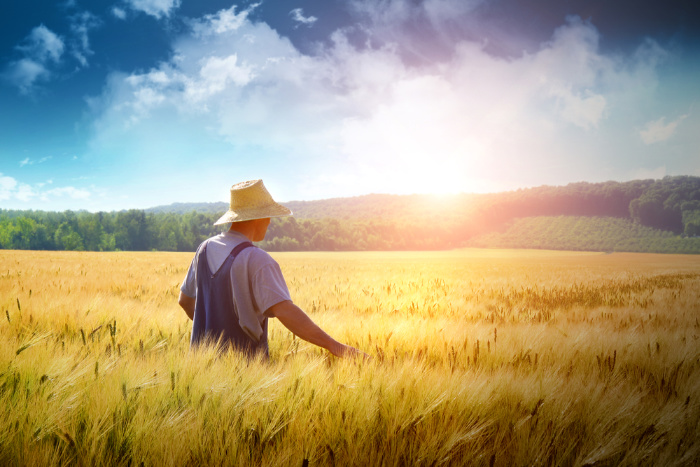
Modern Homesteaders: Journey After 50
You’re creeping up on the climax of your life and it’s up to you what the next chapter will look like. It’s never too late to begin cultivating homestead skills that your grandmother taught you when you were a little girl. The same holds true for men.
After all, homesteading is a lifestyle of living better that also has many lasting rewards. So even if you haven’t spent most of your life as a homesteader, we’ll show you what the homesteading journey after 50 looks like.
What is Homesteading?
To put it frankly, homesteading is a lifestyle that is lived self-sufficiently. Not relying on others to provide you with your basic needs is the goal. This way of life is not just for farmers and doomsday preppers.
It can be for anyone, and it’s never too late to start. Homesteaders learn several skills that make life easier, whether it’s making clothing, collecting rainwater for drinking, or becoming a beekeeper to collect the sweet reward. Did you read my article on A Homesteading Life Without The Acreage?
Homesteading Looks Different For Everyone
Homesteading for everyone looks different and there’s no right or wrong answer. Some families might grow crops and live completely off the land, while others have a small garden in their backyard while living in the city.
Some homesteaders have chickens that graze in their backyards so they no longer need to rely on the grocery store for their eggs.
Renews a Sense of Purpose
Another reason why turning to homestead when you’ve reached mid-life is a good move, is that it gives you a renewed sense of purpose. This doesn’t mean that you’re having a mid-life crisis just because you want to switch things up.
Doing the same old thing day in and day out, with no passion or good explanation as to why you keep doing it, is no life at all. Find something that you are passionate about and help it better your life and others.
Whether you enjoy making homemade soap, canning and preserving jellies, or owning a cow to supply you with milk, do it enthusiastically.
It Will Help You Stay Healthy
We aren’t going to lie to you. Homesteading is hard work and requires a lot of time and energy on your part.
So it’s helpful if you stay in shape. Homesteading will also push you to get in better shape so that you can perform the demanding tasks at hand. Take, for example, a small garden.
Managing a garden requires you to pull a ton of weeds and can be back-breaking work. Working on a homestead will also help you relieve stress while working with your hands that a normal job might not be able to do.
Your diet will look different as well. Not eating processed foods and turning to more vegetables and greens for your diet can improve your overall health.
Learning New Skills
Who says you can’t teach an old dog new tricks? Just because you’ve reached 50 doesn’t mean you’ve finally arrived. Did you know that certain types of sharks will die if they stop moving?
You’ll stop living when you decide you no longer need to keep growing and learning. Don’t hesitate to learn new skills that you can develop and invest in others.
Learning how to knit or sew a quilt might give you the satisfaction you didn’t realize you were missing out on.
Homesteading Can Help with Income
Whether you plan on homesteading full-time or part-time, you can actually make money doing what you love. Are you good at growing organic vegetables and fruits?
You could sell them at a farmers market where many consumers are looking for locally organic grown produce. You could also do the same with your canned goods, eggs, and other crafts that you make yourself.
Your friends and locals will see your talents and may be interested in being a regular customer.
Giving Back
You’ll soon realize that taking on a homesteading way of living actually gives you more time and freedom on how you manage your life and giving of yourself to others.
That’s because things that don’t really matter can be deleted out of your schedule. If you’re all-in on homesteading, you might not have that long commute to work or the 45 to 50 hour work week that’s not as fulfilling.
We most certainly are not saying that working a full-time job is not important or can’t be rewarding, but if your heart is no longer in it, and you enjoy and can live off your land comfortably, it might be time to make the move.
Invest Your Skills in Someone Else
If you were fortunate growing up, you had parents and grandparents that invested their skills into you by showing you how to live without relying on others.
Whether they had a small garden you helped them with or watched them can and preserve delicious foods, those were times that are priceless.
They weren’t just simply showing you a new skill, but were spending valuable time with you. Now it’s your turn. Give back by investing in your children and their children. It’s never too late to start. Being modern homesteaders gives you a chance to invest your skills in someone else.
Final Word
Midlife homesteading is actually the best time in your life to go all-in and use the skills for a better way of living. That’s because you may have more time on your hands and a fresh outlook on life.
If you’ve only recently, or for a while have been a modern homesteader and happen to be in your 50’s, tell us about your journey, we’d love to hear from you. Perhaps being modern homesteaders isn’t as scary as you once thought! May God bless this world, Linda

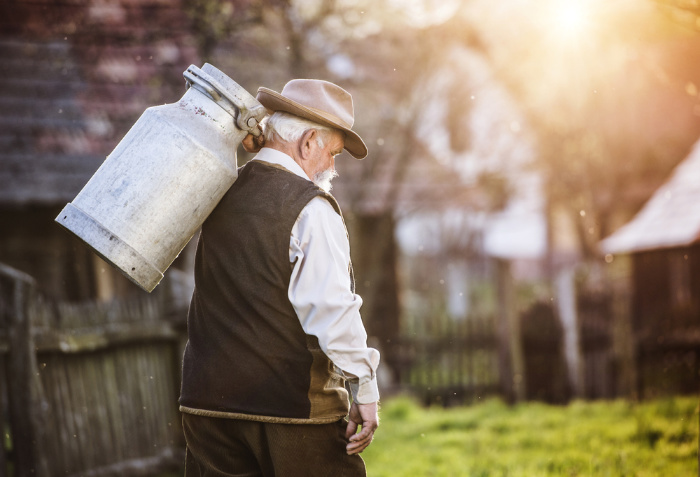

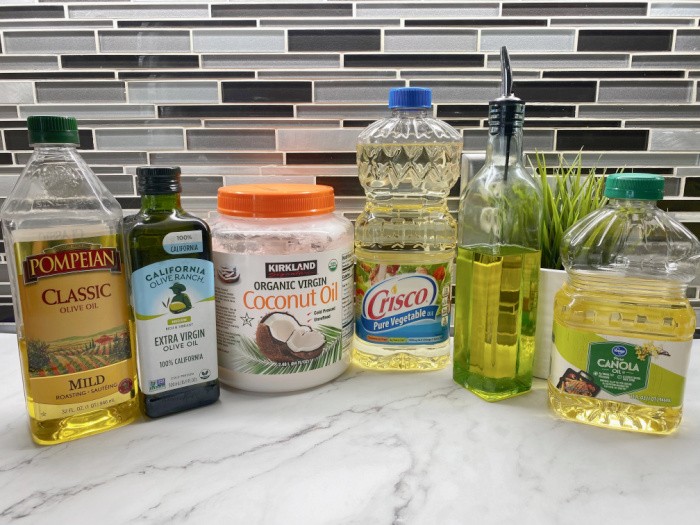
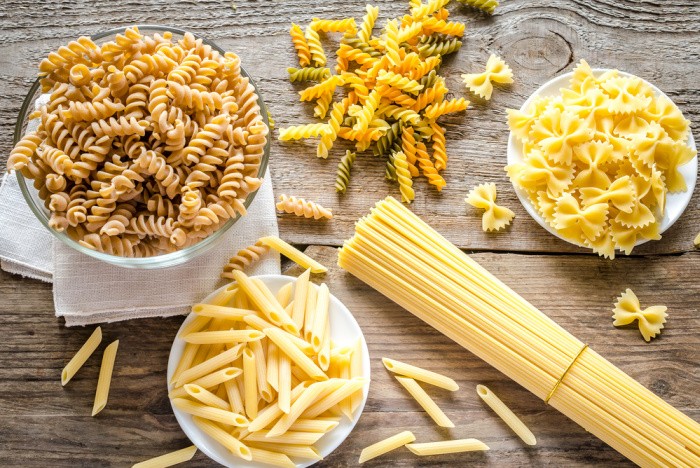
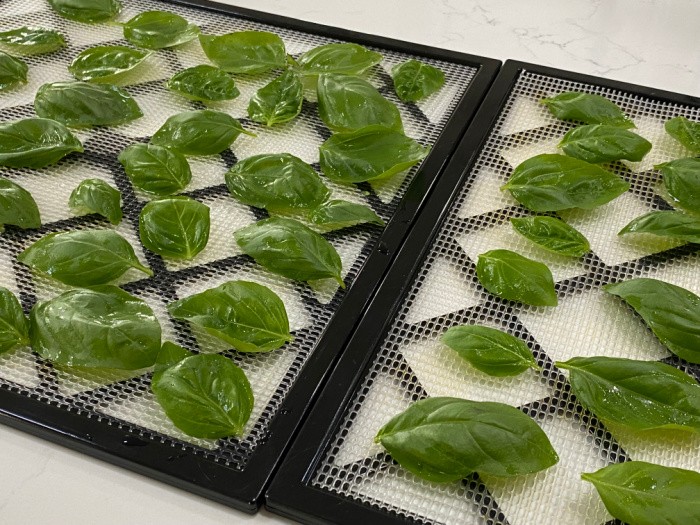
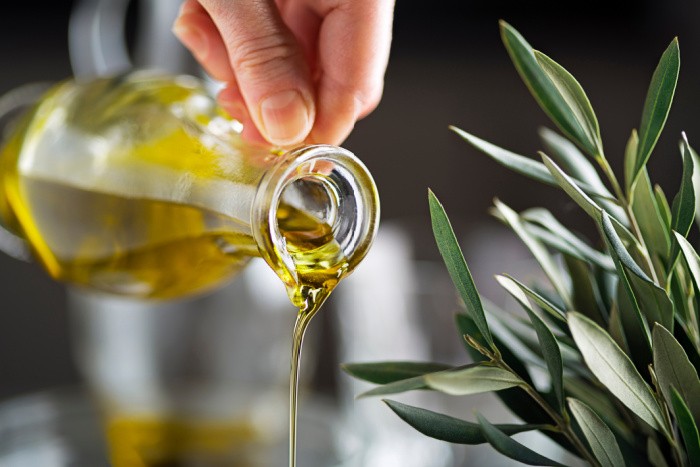
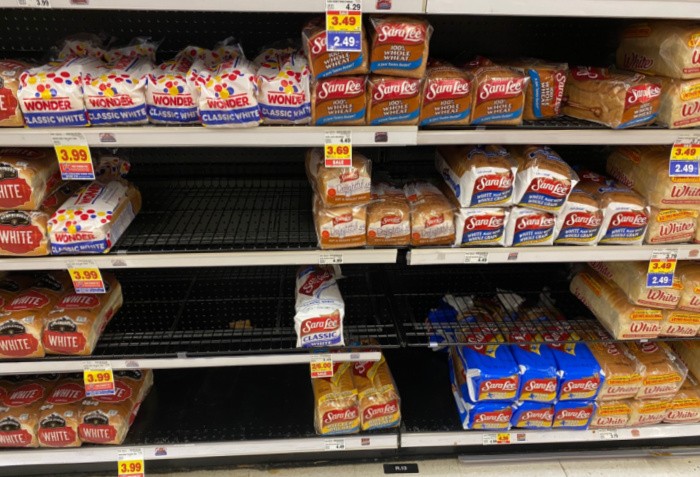
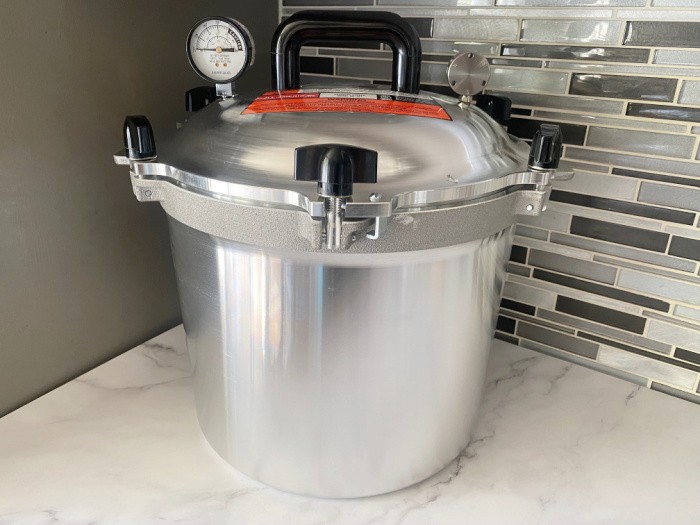
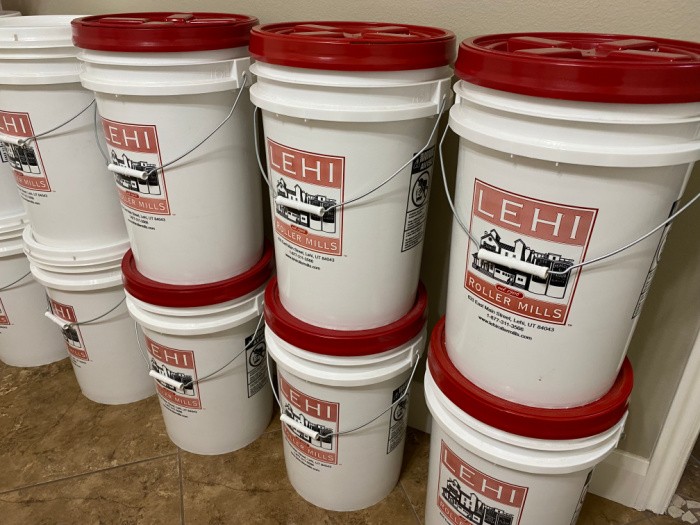
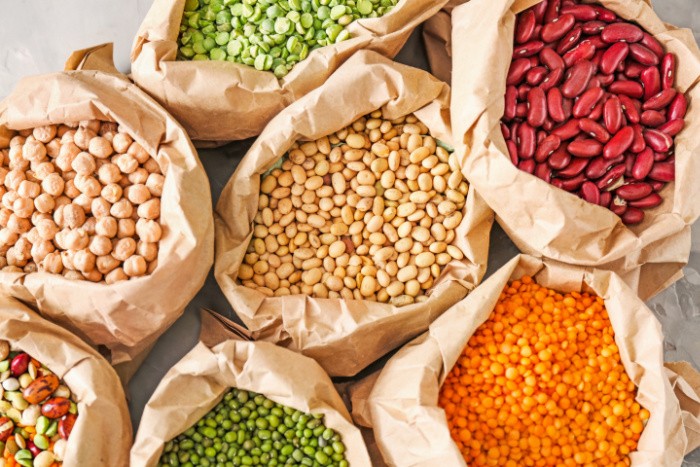
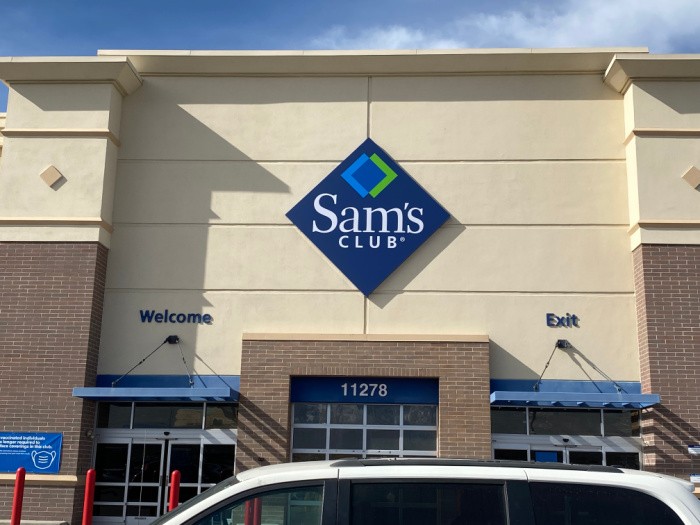
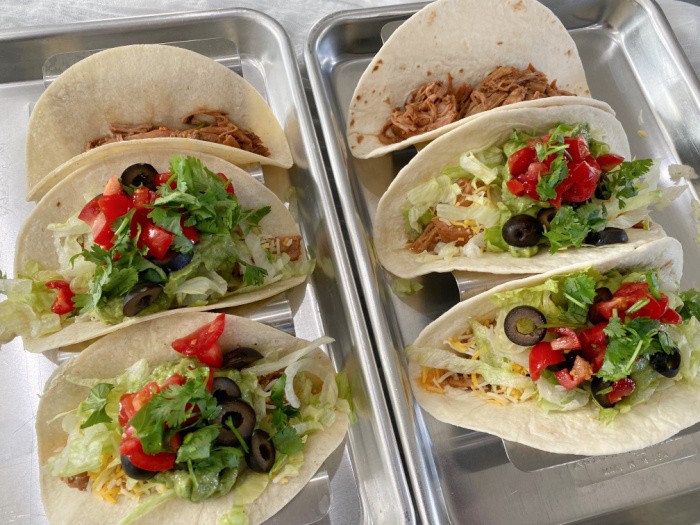

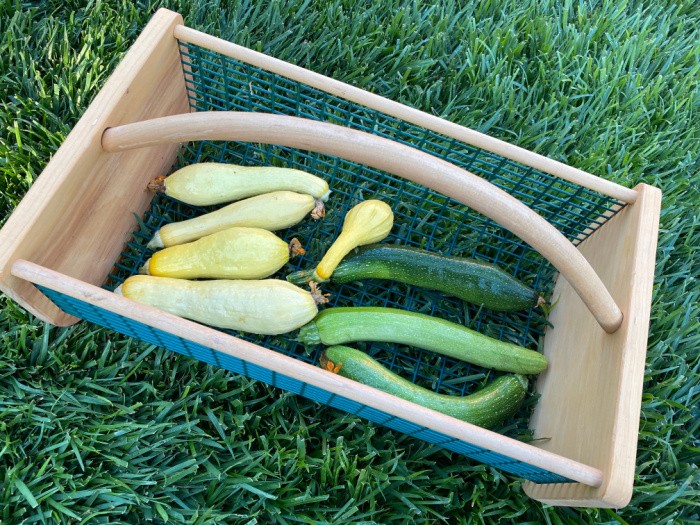
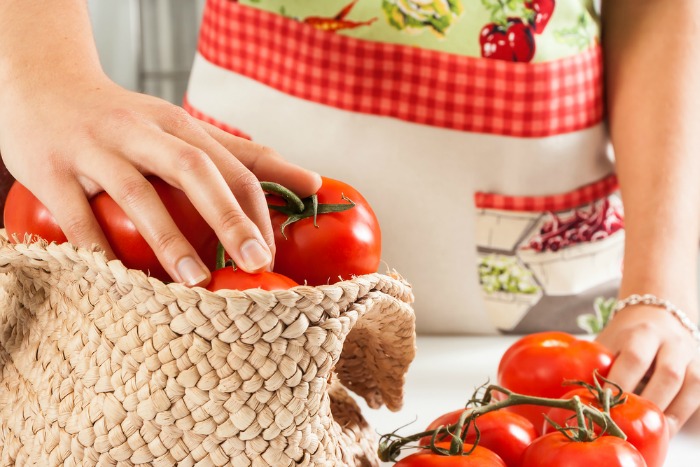
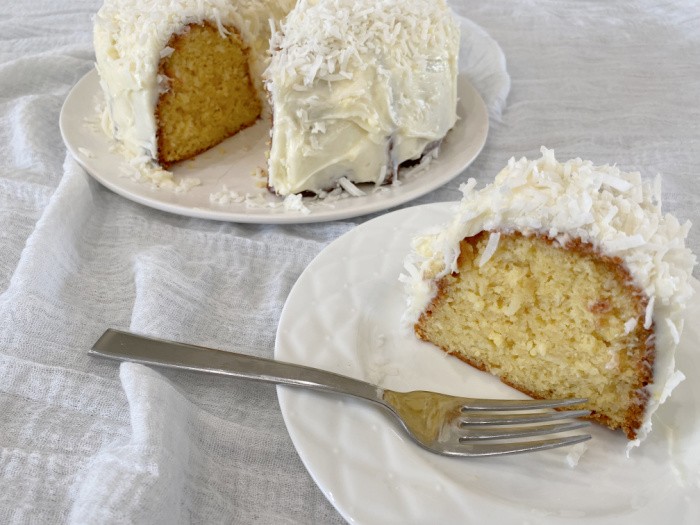
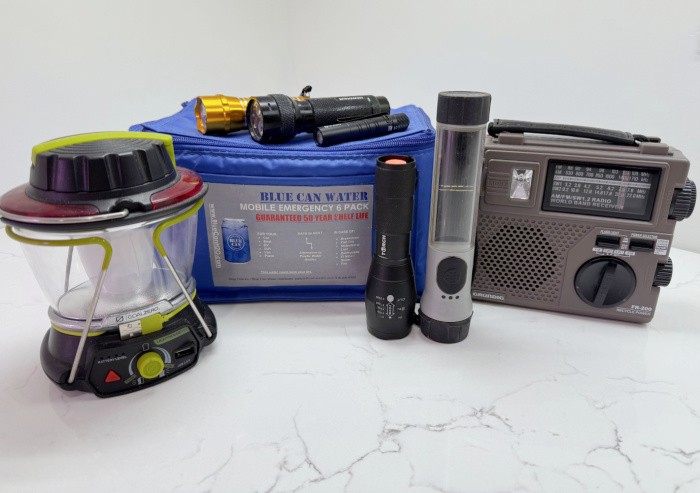
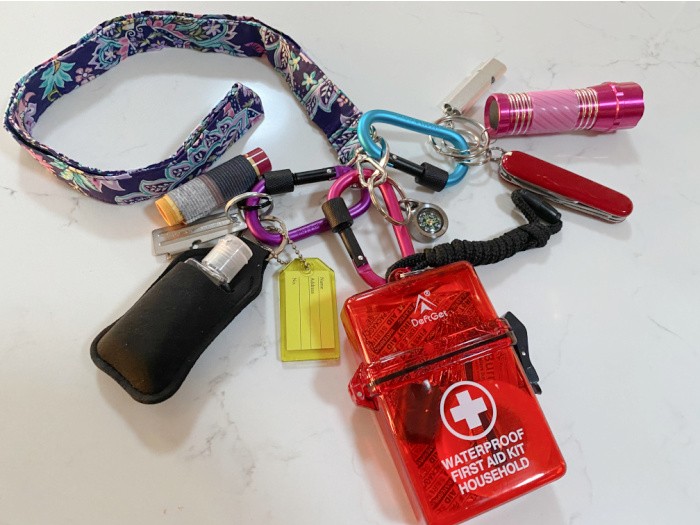



I love to read about homesteading but…I am nearing 67, retired and living on a limited budget. So, homesteading is just a dream that I read and watch YouTube videos about! Also, I was raised on a farm of 640 acres; we raised a very large garden and put up all those veggies; we raised our own meat – beef, chickens, rabbits, pork. It was a lot of work and while I do believe I could do most of that again at my age, I choose not to because of my age and bank account!
My daughter and son-in-law are city homesteaders on a very tiny city lot. They have chickens for the eggs and grow a garden in the backyard. In fact, they have no grass in the backyard! It is all chickens and garden! Their front yard has blueberries, apples and figs (all planted by the previous owner. Also no grass in the front yard! Fortunately for the grandkids (ages 8, 7, 5, and 1) they live right across the street from a huge park with a playground so not having a yard at home is not much of a sacrifice.
I am 66 and on a limited income also. I have taken 2-liter bottles cut them in half and put the top upside down in the bottom part and made a planter for my kitchen window sill. You can preserve the seeds from the vegetables that you buy to plant and grow a garden. Small, but you can still grow herbs and some vegetables. Buying a bag of onions is cheaper than buying an onion individual. You can dehydrate some of the onions and make your own onion powder, garlic powder, even the tops of celery will dehydrate and make celery powder. When you buy groceries. Get a quart or a pint of heavy cream. Let it sit out on the counter and then pour it in a large jar. Put the lid on and shack it until it turns to butter and the glee leftover makes great pancakes which you can make in bulk and freeze in packages by serving size. Do not focus on what you can’t do. Focus on what you can do. Change your perspective. Do away with paper towels and use old towels cut up into drying towels. They is a lot you can do.
Hi Donna, that’s so neat about your window sill! I can almost picture them growing right now! Great tip on the cream! Life is so good when we quit using paper towels, love it! Linda
Donna – I live in an apartment with a south facing deck. I do try to grow some veggies and herbs during normal growing season on my deck. Sometimes I am successful and sometimes not. I do a lot of dehydrating but I purchase almost all of my veggies and fruits at the farmer’s market or a local organic stand. I don’t dehydrate onions for the simple reason that I don’t like the smell of them in my tiny apartment. As for the 2 liter bottle trick – well, since I no longer drink soda, I don’t have 2 liter bottles. I have neighbors who do buy in 2 liter sizes but they tend to forget and toss the bottles even though I have asked for them. They have the added benefit of being good storage containers for things like dried beans and such. I have always kept and dehydrated the tops to celery but leave them in leaf form which I just then toss into soups/stews. I don’t need the leaves powdered. I have taught my young grandchildren how to make butter and use the buttermilk for other recipes. I have also taught them how to make bread – although now my daughter makes all of the bread that they eat so they are learning more about bread baking. I have taught the grandkids as well as my daughter how to make natural yeast – I can go into that more if you would like to learn how.
I am NOT focused on what I cannot do. AND I don’t need to change my focus at all. I have pretty much gone zero waste in the past few years. I rarely purchase things in plastic; I haven’t used paper towels in more than 10 years; and I don’t need anyone telling me to change my focus nor perspective. When I said that “I choose not to because of my age and bank account” it is simply that I won’t go into debt for a piece of land to “homestead” on. As far as being self-reliant – I am. I probably know a ton more about this subject than many who are “homesteading wanna be’s” having been raised on a farm and preserving food that we grew, processing meat that we grew and continuing part of that legacy for many years while I raised my daughter.
I sincerely apologize for misunderstanding your original post. You are amazing with all that you do. I admire you with all you do. thank you so much for your response. Have a blessed day.
Hi Donna, no worries, we are all here to learn from each other. I would love to have a hobby farm. We can dream. Life is so good, Linda
Hi Leanne, I know you are self-reliant. I would still love to own a small hobby farm with my children and a few grandchildren. I would not go into debt for land either. Life is good where I am located but I would love more land and some like-minded people to live by. Linda
Hi Leanne, I love hearing about your daughter and son-in-law!!! You were so lucky to be raised on a large farm. I just want one acre, at my age, it probably won’t happen, but I can dream. I really wish I had some Farmer’s markets near me, that would work too! Linda
It’s great your adult kids are doing in-town homesteading. It doesn’t take as much space as one thinks. Perhaps you can help out by helping with preserving or watching the youngsters during this. Maybe find old recipe books with unusual canning recipes? I wish you and your family the best, Leane.
Oh to be in our 50’s again as we’re about to hit and bump up against 70 in the next 6 months; but, since we got a good start on this rural lifestyle only some of the points made are completely on point.
We’ve been married for nearly 38 years and lived on this paid off rural property for the last 35 and from our perspective, the future only looks better & better.
Both of these are true; but, life was never boring. I worked as an engineer for 44 years and while the job paid quite well and I loved it, I spent lots of time on the road, driving 40 miles one way for 16 years @ one job and as much as 20-30 for a few others. We paid off this homestead more than 20 years ago, and those funds were put toward college for the kids and a nice retirement nest egg.
The homesteading journey after 50 when done right is not much different than before 50. While we cannot do some of the things we did 20 or 40 years ago, we’ve learned to slow down and take things at a new pace. We’ve also made friendships with our rural neighbors, many who are younger who can help us with things we can no longer do as well as before.
Preppers may call these people a MAG (Mutual Assistance Group) and in some ways they are since if things go sideways they are welcome here, were we will have heat, and light, and power, and they will provide companionship, help, and security.
What is Homesteading?
This may be the definition for some and is in part our definition. We do have a garden, and fruits and berries, and keep a horse and chickens and have had goats and rabbits; but, complete self sufficiency is a hard full time goal for anyone to accomplish.
For us, homesteading AKA rural living meansFreedom. When it’s not cloudy, I can go out at night and see the Milky Way or get a clear view of the meteor showers, like the recent Leonids.
I can go out in the yard and shoot firearms, from handguns, to rifles, to shotguns, and even get in a little hunting, in season. Building a campfire to use a Dutch oven or other cookery is as simple as collecting some sticks that are all around from the trees on the property in piles, put there when cleaning them up prior to mowing.
Homesteading Looks Different For Everyone
I’ve done the wilderness survival thing and still teach the techniques to others; but, in our late 60’s they are not as much fun as they once were, nor are the winter activities I used to love, so like life, homesteading takes on a different flavor as we go through life.
For us, homesteading is using most of civilizations creature comforts; but, having ways to deal with life should they go away, as we all too often see in regions with hurricanes, wildfires, or just electrical blackouts.
We are good for everything short of a direct tornado strike, since we heat (house & domestic water) and cook with propane, have backup wood heat and plenty of lighting and alternative cooking means with lots of propane and firewood on hand.
Renews a Sense of Purpose
What you define here is often called being in a rut and a rut in truth is just a Grave, with open ends that should be avoided.
For some this may be true; but, for us, it continues to give us a sense of purpose, since from our secure location we help our community and neighbors in any way we can. We regularly volunteer with local groups like County EMA and the local radio club where I teach preparedness, wilderness survival techniques, and radio and electronics theory.
Now past 60 and in retirement, we find many ways to interact and give back.
It Will Help You Stay Healthy
Unless you are desperate and going to starve, you’ll find that you can get your work done without as much effort, by taking more time. The 3 P’s Planning, Perspective, and Patience make homesteading manageable well into your 60’s and beyond.
As we age, I find that those who have falls or other injuries, most often get them when they hurry, so patience and being slow and cautious not only save strains; but, also injuries.
Planning and patience might mean that you bring that stack of firewood into the house, a few pieces at a time, weeks before you need to burn it.
It might also mean investing in proper equipment.
Years ago we purchased a large wheeled garden cart: the Garden Way Cart” that was a bit expensive at the time; but, still serves us well, easily carrying large loads that are easy to move, even by we old people. LOL
I have quite a few of the Ryobi ONE+ tools and recently invested in a 10 inch battery powered chain saw that’s much easier to handle for small jobs than my old 16 inch, gasoline powered, Stihl 028 Wood Boss. For little cutting jobs or bucking up firewood, this makes for easier work with less muscle pain afterward.
Weeding with your hands? Lasagna gardening uses up your old cardboard and various hoes can help you weed without cramping the hands or even bending over. Once again, the proper tools can help a lot.
Exercise can however be much more fun when walking through your pasture or field or woodlot; but, taking your time splitting wood with a maul can help you find muscles you didn’t remember you had, all the while building strength a bit at a time and not wasting the time on a treadmill.
Actually we still eat a lot of meat, with most of half a beef still in the freezer. We do eat vegetables; but, perhaps the most important thing about a homesteading diet is that it’s mostly cooked from scratch, so you know what’s in it and what’s not.
Learning New Skills
Or perhaps more importantly, teaching skills to others.
Homesteading Can Help with Income
Perhaps it can; but, we’ve found that sharing our extra eggs and honey, does something better. It builds good will with neighbors, who will often volunteer to help you with projects, and that can be worth more than cash in the long run.
Giving Back
See above about teaching others your skills and sharing your goods.
Invest Your Skills in Someone Else
That’s already covered, twice.
I was lucky and my dad taught me how to do nearly everything. I can do rough & finish carpentry, plumbing, electrical and a host of other things I also forced my boys to learn. The boys have since thanked me, because they can do those same things; but, the most important lesson is that anyone can learn to do anything, if you allow yourself to just take the chance and try new things. Like kids learning to tie shoes, you may have to untie and try a few times; but, in the end, it’s worth the time and effort.
Actually I think it only gets better when you finally retire, since then your time is your own and you can make of it anything you can dream of.
Hi Ohio Prepper, you are a great example to the rest of us. Thank you for your awesome comment! Linda
To The Ohio Prepper: I loved reading your comment. The 3 P’s are excellent! I smiled when I read your term Lasagna gardening, as I did this for years, just didn’t have a fun name for it. Homesteading always involves preparing ahead, doesn’t it? Glad you have a good partner in your life. Peace from Minnesota, Wendy
I don’t know that I’m a great example; but, if I am, it’s perhaps because I’ve been doing it for so long. I was doubly lucky in that I grew up in a family that could do nearly anything, or at least tried, and those values became my values.
I also played with electronics from an early age (9 or 10) with a father mentor and others in the community who kept me going. I then found a career in engineering and worked well paid jobs for more than 40 years. They say if you find a job you like, you’ll never work a day in your life, and that for the most part was my career, getting paid to play and create new things.
Back to the article: “Modern Homesteaders-Journey After 50” makes me think back those 10-15 years and the things I could do then at a young 50. I could cut, split and stack firewood, climb my 50 foot tower a dozen times in a day to work on antennas, and man handle the rototiller without breaking a sweat.
50’s was easy and it’s the 60’s into 70’s that start to slow you down; but, slow isn’t stopped, and any day I can get up, stand on 2 feet without falling on my face, and think through my days tasks with a clear mind, is still a great start to the day.
Some things (actually many things) take longer than they once did; but, doing them, still gives you satisfaction when you are done
I mentioned perspective and if you simply switch up two words ”get” instead of ”have” it can make all the difference in the world.
Even with a large supply of propane, with winter coming we’ve started bringing in firewood for back up heat.
If I have to bring in firewood, it’s a chore; but, If I get to bring in firewood then it’s a blessing, since an old decrepit guy couldn’t do such a thing.
Attitude is everything!!!
HI Ohio Prepper, I love that!! Attitude is everything!! I have family and friends that call me Pollyanna because I always have a smile on my face and I’m grateful for what little I have. Life is too short to be upset or angry over just about anything. If I get a drink at Starbuck’s it takes fabulous because I didn’t have to make it. My sister complains about every drink every time. I don’t think she even realizes it, because it’s become a habit. Life is good! Linda
I love this site. I have never posted until today. We are all amazing women and we don’t need to be easily offended just because someone is trying to put a positive spin in her comments. We all know that each of us is in a different point in her life. Most comments are just meant to be helpful and encouraging. Thank you for your blog Linda! Julie from AL
Hi Julie, thank you for your kind words!! We are all amazing men and women, that’s for sure! Linda
Hi Julie from AL: this is a great blog Linda has going. Please know that her readers do pay attention to new comments, so glad you posted yours! Peace from MN, Wendy
HI Wendy, great comment, my readers are one big community where we can learn from each other. Linda
Donna I wish I could just stop using paper towels but I am one of those people who shed worse than a dog (LOL) and I am always finding hair all over my kitchen even though I pull my hair back. It seems like it gets trapped in my dishcloths too, so I have less problems with it when I use paper towels. I try to buy the ones that tear in different sizes and usually use the smallest one, but I still spend too much on them. I do try to use them several times, but my husband doesn’t like them laying around the kitchen so I hide them in the microwave. (LOL) This may seem silly to some people but I hate to find hair in my food, even though I know it is mine.
Hi Julie, the microwave, I got the giggles over that one, Julie!! Paper towels work, I use them for draining my bacon since we no longer take the newspaper. Linda
Linda,
We also use paper towels for draining bacon.
While it’s a bit messy, you can save those greasy paper towels in a zip lock bag and they make a great fire starter for your campfire or bon fire.
Of course most of that bacon grease is poured into a container and used later for frying eggs, mush, French toast and other things, to make them more delicious.
Hi Ohio Prepper, good idea!! Linda
Ohio Prepper – My daughter only uses paper towels for her bacon as well. I told her she should save the greasy paper towels in a container in the freezer to use on her cast iron after cleaning it. She has found this to be very beneficial and saves money as well. When there is hardly any grease left on the paper towels, she and my son-in-law use them for fire starters in their backyard fire pit.
I have gotten to the point where I bake my bacon. I do it basically like anyone else baking their bacon except, I use a rack on the baking sheet. All of the bacon grease then drips down onto the baking sheet thus eliminating my need to use paper towels. I drain my grease through a few layers of cheesecloth to remove any bits and pieces of bacon. When the bacon grease has cooled, I then scoop it into my refrigerator jar. Note: I keep the cheesecloth in the freezer to use over and over again before disposing of it – I don’t have a place to use it for fire starter unless it is close to camping time (May through September) and then I will take the frozen cheesecloth with me to start fires.
Hi Leanne, wow, I like the cheesecloth tip!! Linda
Leanne,
This is interesting to know, since my fear of doing this is that when using the bacon grease for seasoning cast iron, the salt might cause rust, so we just use Crisco, mineral oil, or vegetable oil.
Any flammable paper or cotton with grease on it is good to keep around for starting fires. We have no fire pit; but, do build campfires or bonfires on occasion.
My wife does not like baking the thick cut bacon and prefers to pan fry it; but, for the normal thin cut, we purchased a rack and pan called the ”Bacon Bonanza” that holds the bacon vertically and lets the grease drip into the pan. It’s an As Seen On Tv gadget; but, it does work.
Julie, I laughed too at the microwave hidey hole! I snatched a lint roller my son was ready to throw away and I use that to catch my flyaway hair, mostly on counters. It’s amazing how well it works. I just tell son to give his used ones to me before throwing away. Cheaper than paper towels, especially since he’s the one buying the rollers!
Julie,
We use them all the time; but, still use cloth towels for many things.
We can afford them and they are convenient.
We used the Brawny that tear in half and my wife and I have our individual reasons for using or reusing them.
Me too!!!! Hair of any kind in food brings the meal to a full stop and search; however, in our case it’s generally one of the cats.
Linda ~ The cheesecloth trick is part of my year of going (almost) zero waste!! In place of paper towels, I use cheesecloth; also, I replaced paper towels for other things by cutting up a couple of old t-shirts (they had logos that I did not feel were appropriate to go to the thrift store – nothing dirty but my family oriented!). I then serged the edges and now use those in place of paper towels; some pieces were cut big enough to use on my swiffer dust mop and I also use that when I mop my floor with vinegar water. To be honest, I probably have save hundreds of $$ this year alone by not using paper towels!
Hi Leanne, I love this! I save so much money not using paper towels as well. It’s funny I do not remember my mom having paper towels. We had a towel hanging on the oven door! That was it! Linda
Ohio Prepper ~
I have never had an issue using bacon grease for seasoning or keeping my cast iron seasoned. This is how my mother kept her cast iron seasoned as well. Mom cooked bacon in her skillet and when the pan cooled, she removed any bacon fat, scraped any bacon bits out of the pan and just wiped it clean with a cloth. She rarely had to even wash the pan. I do recall that she made peanut brittle in her skillet! She tried making it one time and one time only in another pan and the candy stuck so bad that she had to soak it for 24 hours before scrubbing it clean. She went back to the cast iron skillet as the pan was so well seasoned that the candy simply flowed out with nothing sticking to the pan.
I have been using cast iron for the past 40+ years and have never had a problem with rust. I think the key is that I clean my cast iron with boiling water, then put it on the stove at a low temperature to dry it out completely, then grease it well while it is still very hot. Once it is cooled, I wipe it again with a dry cloth. I also store my cast iron between uses with cloth between the pans – this helps protect the pan from knocks as well as to absorb any moisture that might be present in the air. I do know that Lodge recommends a vegetable oil for seasoning. Their pre-seasoned pans are seasoned that way but with a soy based oil. I did get their seasoning spray one time at a premium cost and discovered that Pam cooking spray was the same as the Lodge brand spray!! Pam was considerably less expensive, though. I used that for a while and found that I did have things stick to my pans more frequently than I do with bacon grease.
My daughter was able to salvage a cast iron skillet that she saw a guy on the verge of tossing in the garbage because it was rusty. She took it home and used a potato cut in half and salt to clean any grime and rust from it. She then re-seasoned it with bacon grease. She has never had anything stick to the pan nor had any rust come back.
Hi Leanne, I love bacon grease in the frig!! Love this comment, Linda
Linda, I often go back to your earlier blogs to read more comments: so many great ideas and tips from your readers. Lol, and sometimes just validation for doing things the old way, like keeping cast iron good. Let’s see, I’m 59. I ‘found’ my first cast iron skillet in a $10 used stove I bought for my first home, a single wide trailer house (purchase price was $200). I was 23. Lol, 36 yrs ago and I still use that skillet. Pretty sure I got my money’s worth just from the skillet alone. My adult kids think I’m nuts that I always keep a pint jar of bacon grease in frig. That’s the only stuff I use to clean/season my cast iron skillets. Yes, I have a second one I got at a rummage sale for $2. Other, more modern, pans have gone byebye. I do have a good stainless steel boiling pan that is getting older. Seems like it’s getting marks on it’s inside bottom. Has more of a problem with pasta sticking. Any ideas?
Hi Wendy, I wonder if the stainless steel on the bottom that has marks has corroded??? You may want to check a thrift store for a new one. I add oil to my pasta when boiling, not sure why. My mom did and now I’m almost 70 and I still do it. That may help it from sticking. Linda